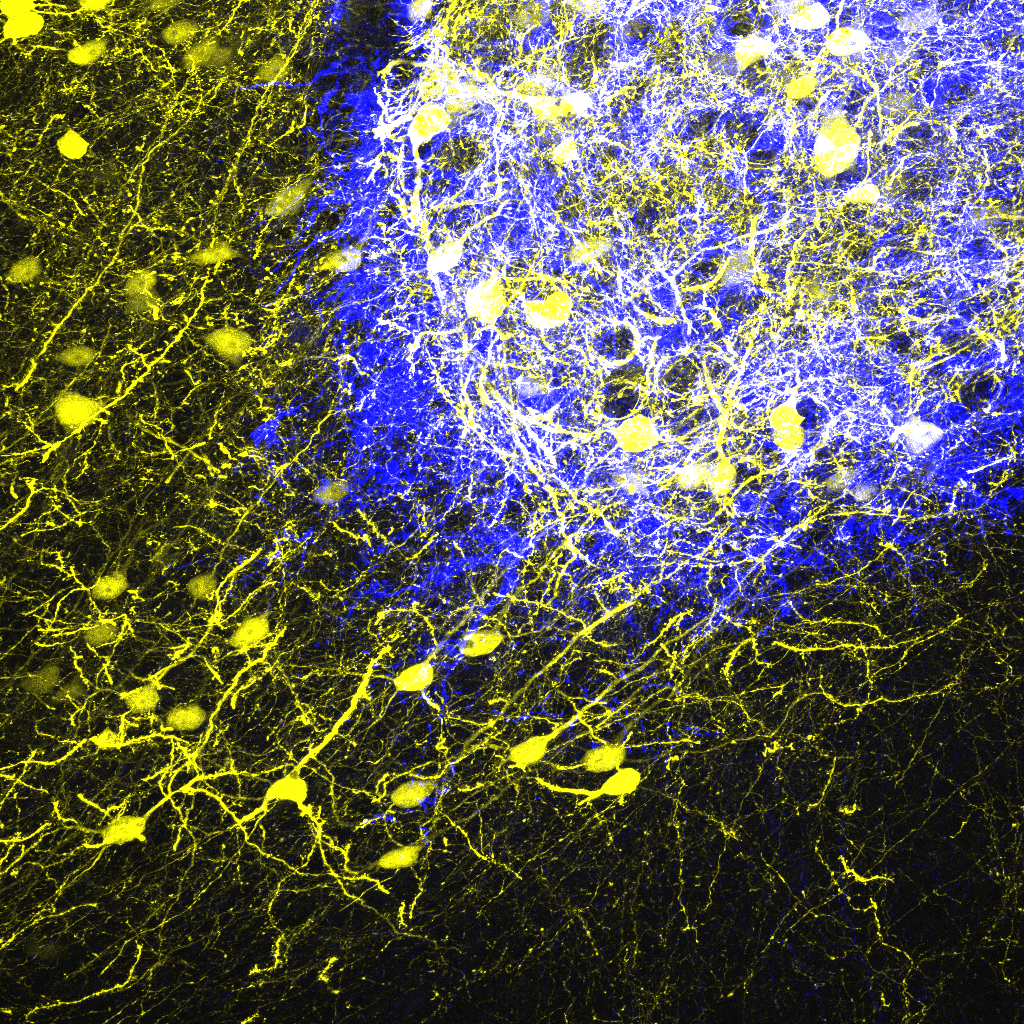
Embryonic neurons (yellow) transplanted into the adult mouse brain connect with host neurons (blue), rebuilding neural circuits previously lost with an injury.
(Photo by Sofia Grade)
Damage to the brain is one of the most difficult injuries to repair — in large part, because of the highly specialized functions of cortical cells. But a team of scientists from LMU Munich recently found that the damaged neural connections can be rebuilt by transplanting embryonic neurons into the affected areas of the brain. Researchers have observed the progress of the transplanted neurons in the visual cortices of adult mice over the course of four weeks. They found that the new cells have successfully taken over the role of missing neurons: they built connections with other neurons and responded to visual stimuli. These findings suggest that, unlike previously thought, brain function repair is possible in adult brains with the help of neuronal transplants. This could prove helpful in the treatment of such conditions as Parkinson’s disease and stroke.
Authors:
Susanne Falkner, Sofia Grade, Leda Dimou, Karl-Klaus Conzelmann, Tobias Bonhoeffer, Magdalena Götz & Mark Hübener
Corresponding author:
Magdalena Götz, Ludwig Maximilians University of Munich (LMU), Munich, Germany
Original paper published in Nature on October 26, 2016

